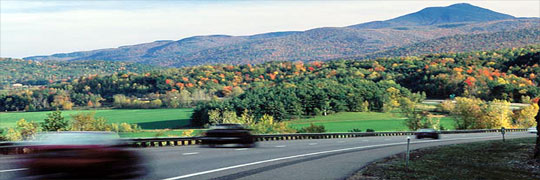
Car sales in June dropped over 18% to the lowest level in 10 years. Demand for small, fuel-efficient cars continues to grow, however, as pickup truck and SUV sales decreased. This shift has blindsided every automaker except for Honda, whose sales rose 1% in June. Even Toyota was unable to meet demand for its fuel efficient models. Gas prices, a slow economy, and a slowdown in housing construction have all been blamed for the drop in sales. Curiously, it is not only efficient models like the Toyota Prius that are in high demand - according to Forbes, the full size SUV Lexus LX, that gets 14 mpg, is the second most wanted vehicle after the Prius. Some auto analysts note that the the SUV market, though struggling, isn't dead. [Source: NY Times, Yahoo! Autos]




 Vehicle miles traveled (VMT) in the U.S. have decreased for the 6th straight month. The number of highway miles driven from November 2007 to April 2008 in the U.S. fell 1.7 percent from the previous year. Public transit ridership continues to increase as a total of 30 billion fewer miles were driven between November and April. Cambridge Energy Research Associates say the gasoline price shock has finally caught up with consumers. This is the "steepest decline" in U.S. driving mileage since the 1979-1980 Iranian Revolution that caused the oil shock resulting in a significant drop in mileage over those two years, said the Department of Transportation's spokesman Doug Hecox. In April of this year alone Americans drove 1.4 billion fewer highway miles than they did in April 2007. [Source:
Vehicle miles traveled (VMT) in the U.S. have decreased for the 6th straight month. The number of highway miles driven from November 2007 to April 2008 in the U.S. fell 1.7 percent from the previous year. Public transit ridership continues to increase as a total of 30 billion fewer miles were driven between November and April. Cambridge Energy Research Associates say the gasoline price shock has finally caught up with consumers. This is the "steepest decline" in U.S. driving mileage since the 1979-1980 Iranian Revolution that caused the oil shock resulting in a significant drop in mileage over those two years, said the Department of Transportation's spokesman Doug Hecox. In April of this year alone Americans drove 1.4 billion fewer highway miles than they did in April 2007. [Source: 

 Premium gas sales are falling, while cars requiring the higher-octane fuel are rising. In 1997 premium fuel sales held 16.6 percent of the market, in 2007 they claimed only 9.4 percent. From 2006 to 2007 premium sales dropped 0.1 percent. Nevertheless, this year there are 282 new vehicles requiring the fuel, in 2002 only 166 new vehicles required premium as their fuel. Drivers, however, regardless of their car requesting or requiring the fuel are deciding regular or midgrade will do. As a result, gas stations around the nation have been running out of the lower grade fuels for up to two days. Measured by volume, premium sales in March 2008 were 0.4 percent lower than in April 2007. [Source:
Premium gas sales are falling, while cars requiring the higher-octane fuel are rising. In 1997 premium fuel sales held 16.6 percent of the market, in 2007 they claimed only 9.4 percent. From 2006 to 2007 premium sales dropped 0.1 percent. Nevertheless, this year there are 282 new vehicles requiring the fuel, in 2002 only 166 new vehicles required premium as their fuel. Drivers, however, regardless of their car requesting or requiring the fuel are deciding regular or midgrade will do. As a result, gas stations around the nation have been running out of the lower grade fuels for up to two days. Measured by volume, premium sales in March 2008 were 0.4 percent lower than in April 2007. [Source: 



 Many people are planning on vacationing closer to home this summer in response to high gas prices. Others have crossed the idea of a vacation out altogether. As a result, resorts, inns, and vacation destinations across the nation including Vermont are opting to provide further incentives to possible vacationers who may be weary of making the trip. Gas credits are the number one incentive many places trying to attract travelers are offering. Some vacation spots, such as the Wilder Farm Inn in Waitsfield Vermont are taking it even further offering, however, rebates for those who drive hybrids or carpool to get to their inn. The Iannuzzi's, owners of the Wilder Farm Inn, have said that four people have already taken advantage of the deal. [Sources:
Many people are planning on vacationing closer to home this summer in response to high gas prices. Others have crossed the idea of a vacation out altogether. As a result, resorts, inns, and vacation destinations across the nation including Vermont are opting to provide further incentives to possible vacationers who may be weary of making the trip. Gas credits are the number one incentive many places trying to attract travelers are offering. Some vacation spots, such as the Wilder Farm Inn in Waitsfield Vermont are taking it even further offering, however, rebates for those who drive hybrids or carpool to get to their inn. The Iannuzzi's, owners of the Wilder Farm Inn, have said that four people have already taken advantage of the deal. [Sources: 
